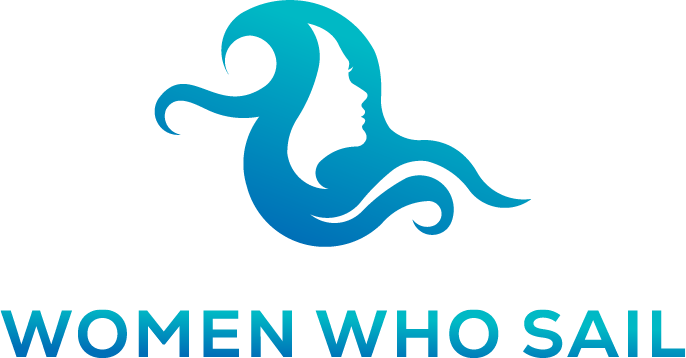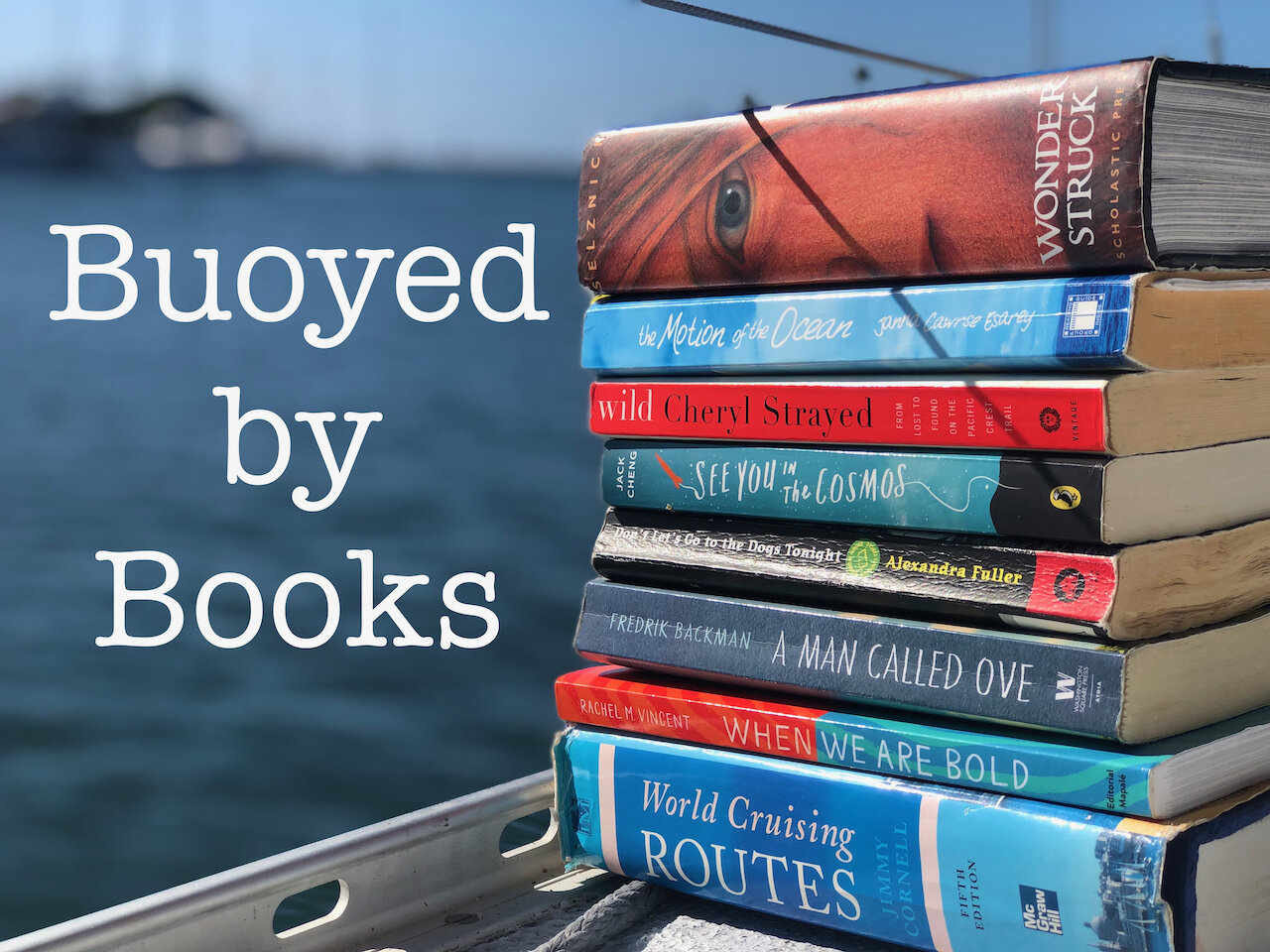READINGS ON LEADERSHIP
I want leadership strategies for messy lives.
Books buoy us.
They lift us up, give us direction, teach us where to go and how to get there. Each month, the Women Who Sail newsletter tackles a timely, thought-provoking topic. As book curator, I gather readings to explore each theme further. If you have ideas or feedback, or just want to chat about reading and writing, drop me a line!
Affiliate links: each sale made through our Bookshop.org links supports independent bookstores! Women Who Sail also receives a small affiliate portion of the sale. You can see all our Bookshop book recs at: bookshop.org/shop/womenwhosail
BY JANNA CAWRSE ESAREY
The pandemic. Injustice. The economy. Climate. Now more than ever we need strong leaders, not just in traditional positions of power, but in our everyday lives.
But do an Internet search for “leadership books” and you get lots of dollar signs and (men in) suits. When did leadership become code for corporate capitalism? Not that I’m against making money, but as a sailor and a woman, a writer and a parent, I want win-win solutions and broad pathways to success. I want everyday organizing for everyday people. I want leadership strategies for messy lives.
I hope this month’s readings give you inspiration and courage, teach you about teamwork and transformation, and help you envision what, after the suck of 2020, comes next.
NONFICTION
by Kazu Haga
During this time of great political division, you might be wondering where do we go from here and how do we get there together? By interweaving his personal story with Dr. Martin Luther King’s tenets of nonviolence, Kazu Haga shows the way. Haga’s own story is fascinating; he’s a riches-to-rags immigrant, a high school dropout, and a student of Buddhism who goes on to work with incarcerated people, teaching skills of peace, social change, and reconciliation. Haga criticizes call-out and cancel culture and encourages change-makers to bring compassion, humility, and strategy. A great read for citizen leaders!
by Brené Brown
Brené Brown books read like you’re talking to a wise friend—who sometimes gets stuff stuck in her teeth. Smart, humble, approachable. For so long, we’ve been expected to bring only our “professional” selves to work. But we’re not automatons. Today’s Zoom meetings—with cats streaking and kids bickering (or vice versa) in the background—is proof. According to Brown, “Leaders must either invest a reasonable amount of time attending to fears and feelings”—imagine, talking fears and feelings at work!—“or squander an unreasonable amount of time trying to manage ineffective and unproductive behavior.” Brown contrasts armored leadership (perfectionism, scarcity, fear of failure) with daring leadership (curiosity, empathy, inclusivity). I even noticed some overlap in Brown’s analysis with Kenneth Jones and Tema Okun’s fascinating article about white supremacy culture. Interesting food for thought.
MEMOIR
by Ibram X. Kendi
If there’s one book you read this year, let this be the one. Because if there’s anything 2020 has shown us, it’s that centuries of racial inequities persist. Rather than deny, ignore, or wallow in guilt about injustice, now is the time to learn and lead. How to be an Antiracist is a great place to start. The book is controversial in that Kendi, a Black historian, implicates himself in racism. His methodology is fresh, vulnerable, and engrossing. He uses his personal story as a springboard to explore the history of racist ideas and how to combat them. The result is a moving and insightful blend of analysis and memoir—the end of the book brought me to tears. If you want to dig deeper into the actual history, Kendi’s Stamped from the Beginning is also excellent, or his collaboration with YA author Jason Reynolds, Stamped, is a history book for young people whose first line is: “This is NOT a history book.” (It’s about the here and now!) Finally, if you want to start really early with combatting racism, check out Kendi’s Antiracist Baby, a board book that won’t leave you bored.
by Tiffany Dufu
Mother of two, nonprofit executive, and launch team member for Sheryl Sandberg’s Lean In, Dufu was continually asked by audiences, “How do you manage it all?” Dufu’s answer was, “‘I expect far less of myself and way more of my husband.” This “memoir and manifesto” about managing family and work explains how Dufu renegotiated roles at home. Each chapter shares her compelling story, followed by stats, studies, interviews, and strategies. Dufu reminds us that no one has the time/energy/sanity to do “it all” perfectly, so good leaders prioritize. Dufu decides to do what matters most to her—then drops or delegates the rest. Of course, that’s easier said than done, but Dufu writes about her process with candor and clarity. I walked away inspired.
FICTION
by Naomi Alderman
It's been a long time since I read a novel so electrifying that I stayed up late and woke up early to read. Naomi Alderman’s The Power is a fascinating novel about leadership in revolutionary times. Imagine a time in the future when women have evolved with the power to electrocute others. So now they rule the world. Knowledge about the past (our time) has been lost, but one plucky male anthropologist suggests that men used to be soldiers (hilarious!) and women were caregivers (ha!). His ideas are so preposterous that he presents them as fiction, chronicling the tumultuous era when women got “the Power” and went on to (ab)use “the Power.” Spoiler: in Alderman’s imagination, the world is no better off with women (pun intended) in charge.
by Abi Daré
All Adunni wants is to go to school, but at fourteen, she’s sent off to be the third wife of a man whose daughter is her same age. Adunni is devastated. But her mother always told her to use her “louding voice” to fight for an education. When, after much hardship, Adunni ends up as a maid in a fancy house, she seems no closer to her goal, but she keeps her eye on the prize. (Her adventures and friendships in Lagos were my favorite part of the book!) I think the most striking thing about Daré’s novel is that I had to keep reminding myself that this was modern day Nigeria. In that sense, Daré is using her own “louding voice” to remind us that we have a long way to go for women’s rights around the world.
POETRY, ESSAYS, SHORT STORIES
by Elizabeth Austen
Poetry stretches the mind and, for book clubs, the conversation, and the bite-size format squeezes well into busy holidays. With Every Dress a Decision, Elizabeth Austen, former Washington State Poet Laureate, offers a beautiful and brave collection with a central current that whisks the reader right along. Austen writes about questions of love, desire, faith, identity, and strength—while grieving her brother's death and her pain about their past. It’s an intense read, sometimes wry, often moving, always thought-provoking; my book club had one of our liveliest conversations ever. But the reason I feature it here is because one of my favorite poems, “The Girl Who Goes Alone,” is about women in the wild. “To be a girl alone in the wilderness is to know / that if something goes wrong ... the mourning / will be mixed with I-told-you-sos.” And isn’t conquering this particular fear the first step in becoming a leader? (Give yourself a gift. Watch Austen read this wise, funny poem here.)
SAILING CORNER
by Leslie Johansen Nack
Fourteen is the poignant and gripping coming-of-age story of a girl who sails to Tahiti with her predatory father in 1975. With him as captain of their 45’ boat, Nack’s life depends upon him ... until he falls ill. The skills and confidence Nack gains from sailing, combined with her indomitable will, help Nack fight back against her father’s abuse—and might even help her save his life. Written in candid, clear, even-handed prose, this is an important book, one that takes us on a lush journey to distant lands and through the complexities and resilience of the human spirit.
janna cawrse esarey
Janna is a sailor, author, and speaker focusing on helping people pursue B-HAGs: big, hairy, audacious goals. She is an Integrated Life Advocate with ThirdPath, an organization that helps folks redesign work and home to make time for life. Janna’s first book, The Motion of the Ocean, is about how she sailed across the Pacific on her honeymoon and is still married. She’s working on a new memoir about how navigating modern parenthood is more perilous than sailing the Arctic with kids (she’s tried, and sort of failed at, both). Janna lives with her husband and two daughters on an island near Seattle where she is also a school bus driver. More at saildogbark.com.










